The shadow of Grenfell Tower has already produced Nick Kent and Richard Norton-Taylor’s dispassionately forensic but devastating documentary plays based on transcripts from the Grenfell Inquiry. Now comes a companion piece, the National’s Grenfell, a verbatim play using excerpts from the same source, but larded by Gillian Slovo into a wider account of the fire by those who were in it, to equally wrenching effect.
The cast of 12 arrive in the National’s small Dorfman space and one by one introduce themselves: first by their own names, then as the main character they will play (all take on a fast-moving multiplicity of roles, from government ministers to firemen). This distancing measure creates a clear focus on the real person, but reminds us too that they aren’t just acting a script but are proxies for the people who supplied it, many of whom were in the audience on press night. They also assure us from the start that anybody affected by the play can leave and come back as they need to. Nobody left, needless to say, though many were clearly affected.
The piece offers a didactic analysis of a great wrong. And the audience is left in no doubt that this was a great wrong, an avoidable tragedy compounded by human failure on many sides, years in the making.
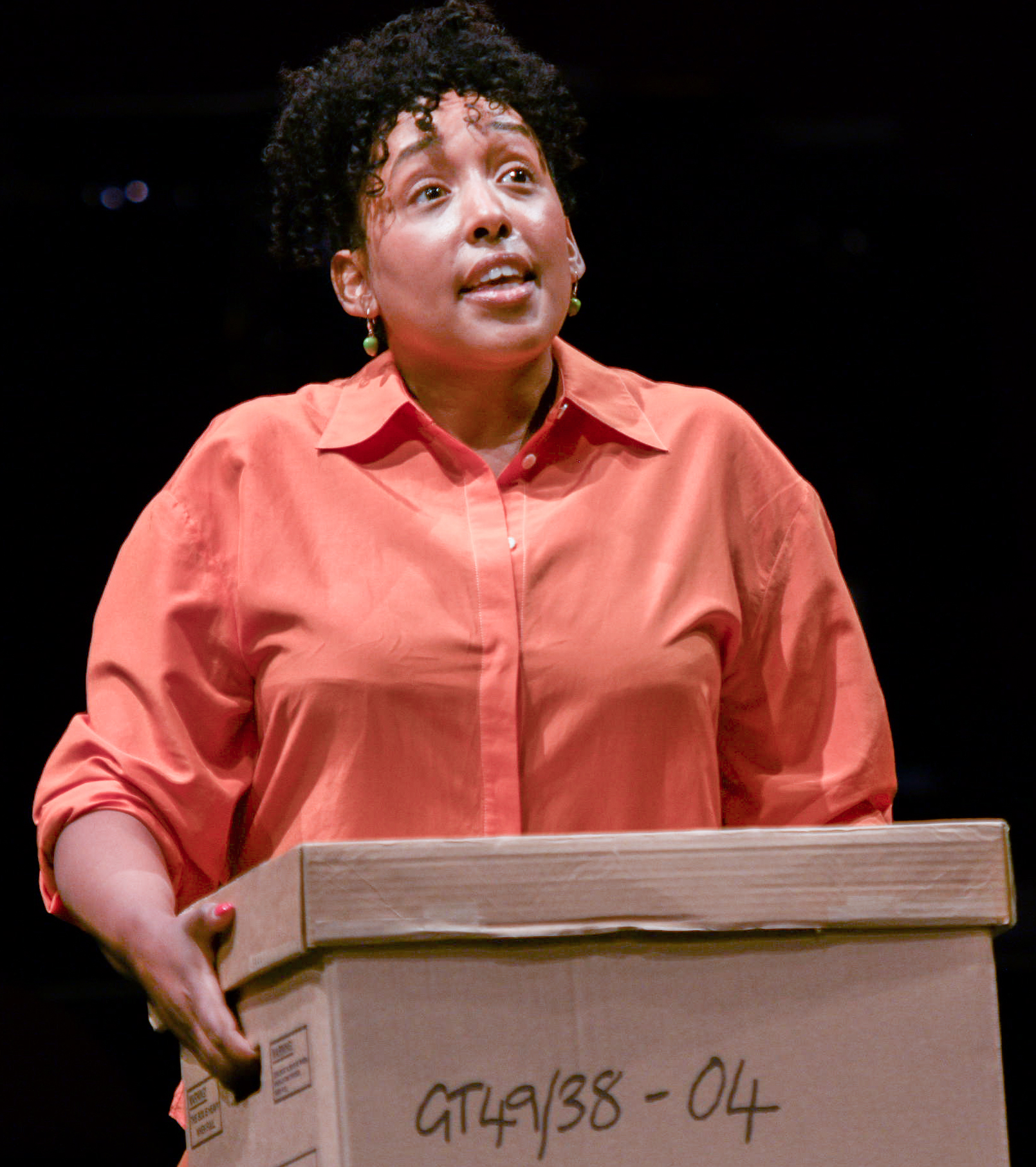 The vast playing area in the middle of the space simply contains large evidence boxes, some of them stacked in a tower. These will create the stage furniture, such as it is. Each of the dozen actors has been allocated a box, holding the keepsakes of their main character; one still sits unopened and reeking of smoke, we learn, in the home of Turufat Yilma (Nahel Tzegai, pictured right). The audience on all four sides become more like witnesses or jurors.
The vast playing area in the middle of the space simply contains large evidence boxes, some of them stacked in a tower. These will create the stage furniture, such as it is. Each of the dozen actors has been allocated a box, holding the keepsakes of their main character; one still sits unopened and reeking of smoke, we learn, in the home of Turufat Yilma (Nahel Tzegai, pictured right). The audience on all four sides become more like witnesses or jurors.
Over its two-and-a-half-hour playing time, the play encompasses the early life of the 1970s building in north Kensington, its disastrous refurbishment in the 2010s and the night of the fire itself, along the way painting a picture of a multi-racial community with strong bonds, happy to live in the tower with its fine views and spacious rooms, share food, chat while inevitably having to wait for lifts.
But we watch as, ominously, the seeds of the fire are sown. The tower is increasingly in need of repair, but the Royal Borough of Kensington and Chelsea is intent on cosmetic changes that will make it look more “attractive” alongside the modern glass academy being built next to it (on two much loved football pitches). New panels and cladding are chosen, budgets are trimmed, cheap materials with, it turns out, a doubtful provenance are purchased. Bewilderingly, all the flats’ numbers are changed, too, a feature the London Fire Brigade will later find fatally obstructive.
The council aren’t the play’s only bad guys: they have offloaded many decisions to the building’s tenant management organisation, who are not vigilant enough about carrying out the fire brigade's safety rulings. Two thirds of the tower’s doors, it was found, were not “fire-compliant”; windows didn’t fit properly, new plastic sills burned when even cigarette ash was dropped on them.
We watch as some of the happy tenants slowly turn activist, resisting botch-job changes the council’s builders want to make to save money, such as installing new boilers in hallways instead of kitchens. The residents increasingly feel they are supposed to shut up and be grateful they have a roof over their heads at all. As many are refugees or from ethnic minorities, they suspect their complaints are not taken seriously. Social worker Edward Daffarn (main picture) in the action group predicts a catastrophe will happen, and only that will make the authorities act.
Interviewed by the inquiry, the men at the cladding companies are skewered by probing questions and admit their dangerous insulation could only be sold in the UK, where Tory governments from Thatcher to Cameron had opened up loopholes in the regulations, in the name of speeding up the planning and building process. One salesman, who knew his product was combustible, tells the inquiry he felt “incredibly uncomfortable” with having to sell it. Damned by two words.
The night of the fire is a masterpiece of storytelling, the tenants caught between the gut instinct to flee and the official “stay-put” line. The cast pitch their accounts with a modulated intensity, their characters reliving their terrifying experiences with the icy wisdom of the survivor, dignified and resigned but not forgiving. The details are indelible: the heat so intense that wine bottles popped open, banisters were too hot to hold. Everywhere, pitch-black smoke.
The staging at this point (by Georgia Lowe) is a miracle of simplicity, a blackout except for spotlights picking out the speakers trapped in their flats, and bars of light on the floor representing the stairs they have to grope their way down, their voices given a subtle echo effect. Downstairs, they find a squad of riot police alongside the ambulances. Some of the detail is almost comically banal, like the older Italian man still fretting about staffing rosters at his restaurant; some is downright harrowing.
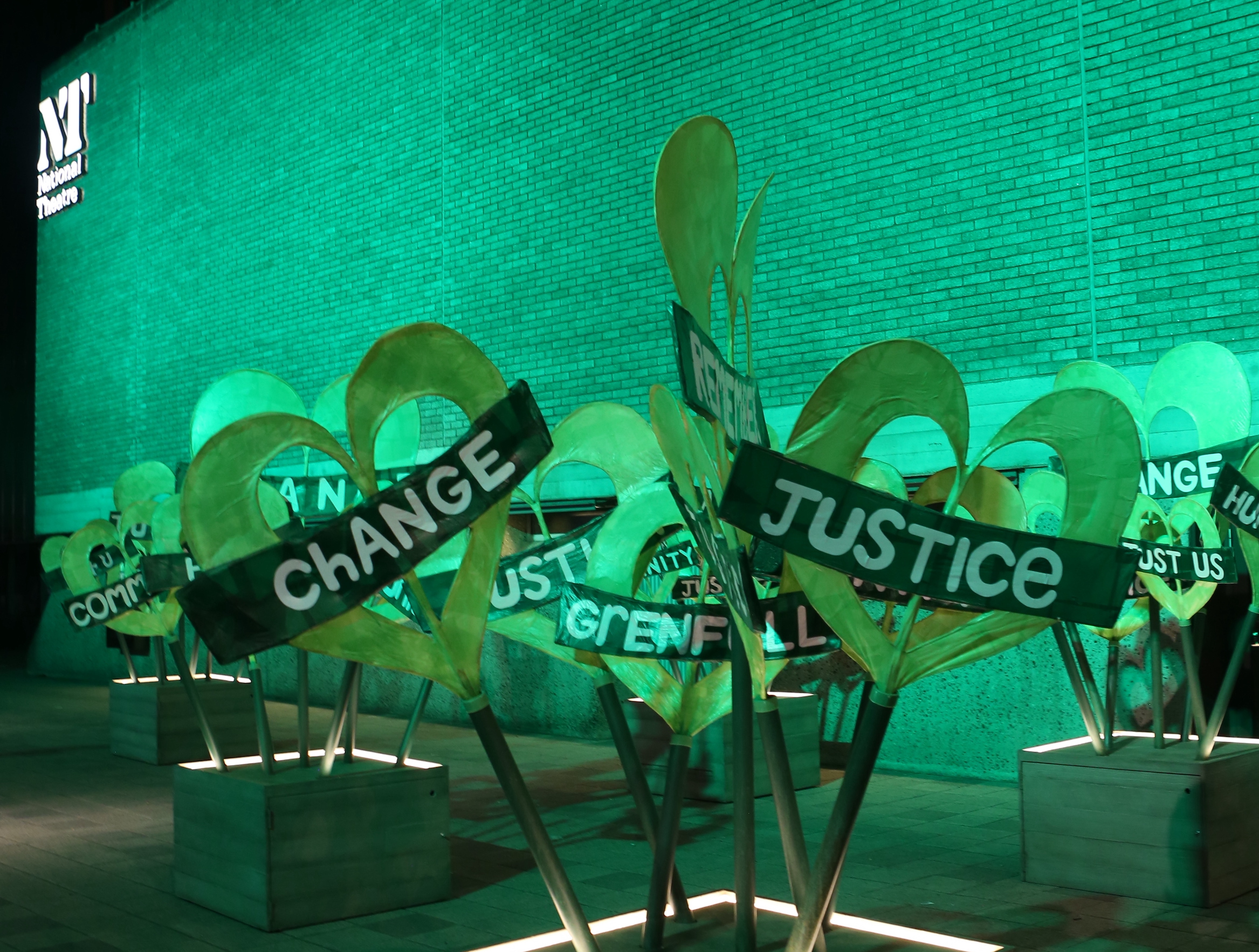
Phyllida Lloyd and her co-director Anthony Simpson-Pike have fashioned out of Slovo's incendiary play a production the National can be proud of. When one man in the closing film refers to his dead bedridden uncle as having been “murdered”, it’s a jolt, but you have to agree with him.
- Grenfell: In the Words of Survivors at the Dorfman until August 26
- More theatre reviews on theartsdesk



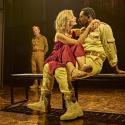
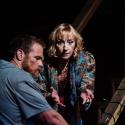
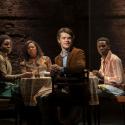
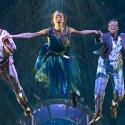
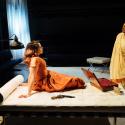
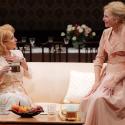
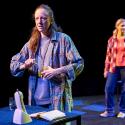
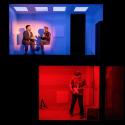


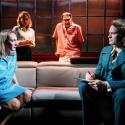
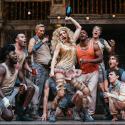
Add comment